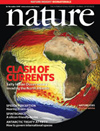REYKJAVIK–As a brown cloud of ash drifts down from the slopes of Eyjafjallajökull toward their truck, Hanna Kaasalainen warns a colleague that their gas masks won’t be much good against carbon dioxide. The masks filter out poisonous gases released by magma such as sulfur dioxide, but carbon dioxide can simply displace oxygen in the air, asphyxiating the researchers as they take ash samples alongside a haze-enshrouded, deserted road. “We shouldn’t stay very long,” the University of Iceland geochemistry graduate student advises, before strapping on a bright yellow mask and opening the door. Continue reading Iceland Eruptions Fuel Interest in Volcanic Gas Monitoring
Category Archives: Features
Transitioning from Researcher to Outreacher
 Shelley Bolderson was scraping mud from a trowel one day in an Anglo-Saxon midden in St. Neots, United Kingdom, when she realized she didn’t want to be an archaeologist any longer. “It was winter, and I’d spent ages on that particular site,” she recalls. “It was really kind of soul-destroying work.”
Shelley Bolderson was scraping mud from a trowel one day in an Anglo-Saxon midden in St. Neots, United Kingdom, when she realized she didn’t want to be an archaeologist any longer. “It was winter, and I’d spent ages on that particular site,” she recalls. “It was really kind of soul-destroying work.”
Until that point, Bolderson had worked as a freelance archaeologist around England, mostly in urban environments, where she assessed building sites before development. She had a bachelor’s degree in archaeology from the University of Southampton in the U.K. and wasn’t interested in doing a master’s or Ph.D. She sought temporary work while deciding what to do next.
One of her temporary jobs was at the University of Cambridge in the U.K. in the office that coordinates the Cambridge Science Festival, an annual, weeklong event that shares Cambridge-area science research with the public. “I saw a new career I had no idea existed beforehand and thought it looked really exciting,” she says. When a position coordinating the science festival opened up in the office, Bolderson applied for it.
Continue reading Transitioning from Researcher to Outreacher
Coming to America: Doing a postdoc in the U.S.
 When Swedish neuroscientist Jens Hjerling-Leffler moved to New York University (NYU) in New York City for a postdoc in 2007, he found life so exciting in the city that never sleeps that he never wanted to shut his eyes. “I actually didn’t sleep very much my first year,” he says. “There’s this idea that you’re going to work a lot, and then when you’re done you’ve got the whole city at your doorstep.”
When Swedish neuroscientist Jens Hjerling-Leffler moved to New York University (NYU) in New York City for a postdoc in 2007, he found life so exciting in the city that never sleeps that he never wanted to shut his eyes. “I actually didn’t sleep very much my first year,” he says. “There’s this idea that you’re going to work a lot, and then when you’re done you’ve got the whole city at your doorstep.”
Continue reading Coming to America: Doing a postdoc in the U.S.
Biological logic
 Grabbing one of the three laptops in her office at Microsoft Research in Cambridge, UK, Jasmin Fisher flips open the lid and starts to describe how she and her collaborators used an approach from computer science to make a discovery in molecular biology. Fisher glances across her desk to where her collaborator, Nir Piterman of Imperial College London, is watching restlessly. “I know you could do this faster,” she says to Piterman, who is also her husband. “But you are a computer scientist and I am a biologist and we must be patient.”
Grabbing one of the three laptops in her office at Microsoft Research in Cambridge, UK, Jasmin Fisher flips open the lid and starts to describe how she and her collaborators used an approach from computer science to make a discovery in molecular biology. Fisher glances across her desk to where her collaborator, Nir Piterman of Imperial College London, is watching restlessly. “I know you could do this faster,” she says to Piterman, who is also her husband. “But you are a computer scientist and I am a biologist and we must be patient.”
